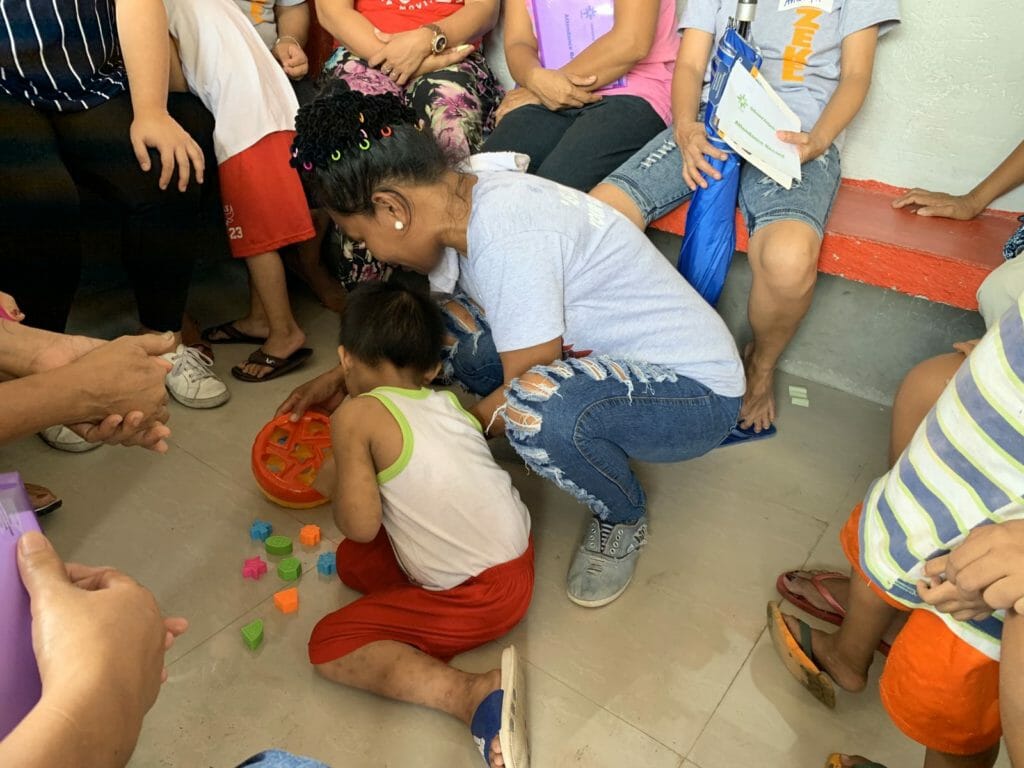By Angel Belle C. Dy, RMT, MD, MBA (Binhi-Early Childhood Parenting Program Lead and Circle of Hope Trustee)
Last November 9, 2019, the Circle of Hope team ventured to Rizal for the first of a series from the Early Childhood Development Resource Caravan for Communities or what we like to call the 0-5 Caravan. We dream to engage community members to support brain growth and development as early as birth and share the importance of supporting children in their first 3 to 5 years of life that will have positive long-lasting effects for their chidl’s future.
The modules were developed for low-income urban communities by an interdisciplinary team of psychologists, teachers and physicians that delivers topics on brain development, milestones, relationship-based interactions, play, nutrition and self-care of parents. The course is adapted and translated from The Growing Brain curriculum of Zero to Three, a US-based organization that has developed a curriculum to educate about the importance of brain development and key roles of adults in supporting children in the first years of life. The caravan will be visiting the community 5 times in 6 months to deliver the different topics. Each visit will leave the mothers with homework to implement in the home until we visit again.
We are partnered with Unbound, a non-profit sponsorship organization originating from Kansas City. It supports children and elderly from the poorest communities for food, education, clothing and access to medical care. One of these communities is in San Vicente, Angono, Rizal. It’s a low-income community by the Creekside and relies on their kang kong-an and contractual work as a means of livelihood.
Walking into the community, there were children running and playing everywhere. There were children playing tumbang preso, Chinese garter and other games I have barely seen aside from the year I took Filipino Games as a PE class in undergrad. The team’s initial thoughts were, “this community knows how to play!”. It was evident that children were given freedom to play outside with their peers. This was great news because that is where we are going with the idea of brain development – kids learning best through play – and in order to maximize it, we want them to have both free and guided play, provided by supportive adults and caregivers. The community already had half the formula!
Our first visit had over 30 participants when we were only expecting 20. The module was on the basics of brain development and equipping the parents with a little science and their role in a child’s growing brain. We spent time thinking up play activities in groups and even made a game out of which teams could come up with the most number of age-appropriate games for young children. It was so meaningful to work alongside mothers and grandmothers excitedly taking part in the activities and providing feedback to one another on ideas to use at home. We are really looking forward to sharing more information with them when we head back this January for our nutrition module.
